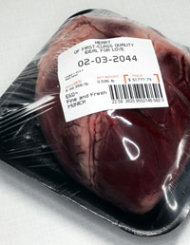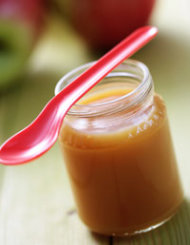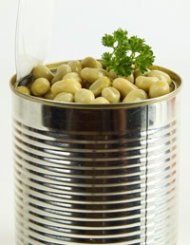Expiration Date 101

Use by, sell by or best before…confusing, right? Next time you're trying to make sense of a food label, remember these guidelines from Lindsay Baker, RD, LD, a registered dietitian and food safety expert in Augusta, Georgia:
• Sell by most often is grocer terminology, letting the meat or dairy clerk know when to swap out stock. While you can normally safely eat a food a few days after a sell-by date, it's not recommended to go much beyond it.
• Best before refers to quality and taste standards. The length of time that food is good after this date depends on the product. Refer to the guidelines listed below for specifics on each food type.
• Use by is more of a hard-and-fast rule indicating that it is not safe to consume a product beyond the stated date.
Read more:
· The Most Popular Fruits
· Top 10 Foods That Burn Fat
· What's the Healthiest Vegetable?
And yet, in some cases, according to Shari Portnoy, MPH, RD, a registered dietician and food safety expert in New York City, it can be all in our heads. "The expiration date can have an impact on how we taste the food," she says. "A study at Cornell University that was reported in the Journal of Food Science showed that people who ate yogurt on the day it was said to expire said the yogurt tasted bad. Others who ate the same yogurt but didn't see the expiration date enjoyed the food without claims of spoilage."
Ultimately, it all depends on the type of food. Read on to find out specifics.
Meat
 Expiration dates are more important than ever with raw meat-and so is common sense. "Whether it's ground hamburger or a pound of steak, either eat it or freeze it within two days of purchase," says Jackie Keller, a certified provider of food safety training for the County of Los Angeles Department of Health. But what if the date is days away? "Even if the sell-by date is five days away, home refrigerators usually aren't cool enough to keep the meat fresh for more than two days," says Keller. Any frozen ground meat should be used within three months; pork holds for six months; and beef, lamb, veal and venison last eight to 12 months, says Keller, citing the Ohio State University guidelines for food management. Signs of spoilage? "If meat is brown or green, it's no good," says Baker. "A slimy, sticky or dry texture is also indicative of spoilage, as is a sour odor." She adds, "Ground beef has more surface area than other meats and may spoil sooner due to bacterial growth.
Expiration dates are more important than ever with raw meat-and so is common sense. "Whether it's ground hamburger or a pound of steak, either eat it or freeze it within two days of purchase," says Jackie Keller, a certified provider of food safety training for the County of Los Angeles Department of Health. But what if the date is days away? "Even if the sell-by date is five days away, home refrigerators usually aren't cool enough to keep the meat fresh for more than two days," says Keller. Any frozen ground meat should be used within three months; pork holds for six months; and beef, lamb, veal and venison last eight to 12 months, says Keller, citing the Ohio State University guidelines for food management. Signs of spoilage? "If meat is brown or green, it's no good," says Baker. "A slimy, sticky or dry texture is also indicative of spoilage, as is a sour odor." She adds, "Ground beef has more surface area than other meats and may spoil sooner due to bacterial growth.Read more:Will I Lose Weight If I Stop Eating Meat For a Week?
Cheese
 Cheese is mold, after all, so it can last an eternity in the fridge, right? Wrong, says Keller. Use her safety rules to keep yourself and your family safe: "Soft cheeses like Brie and Camembert should be eaten within three to four days of opening," she says. "Hard cheeses, such as Parmesan and Cheddar, last up to three weeks and can also be frozen up to six months." Is it ever OK just to cut off the visible mold on a block of cheese and call it good? Probably not, says Jill Nussinow, MS, RD, author of The Veggie Queen: Vegetables Get the Royal Treatment. "Since there are a number of reasons for mold, it's best to throw the cheese out," she says.
Cheese is mold, after all, so it can last an eternity in the fridge, right? Wrong, says Keller. Use her safety rules to keep yourself and your family safe: "Soft cheeses like Brie and Camembert should be eaten within three to four days of opening," she says. "Hard cheeses, such as Parmesan and Cheddar, last up to three weeks and can also be frozen up to six months." Is it ever OK just to cut off the visible mold on a block of cheese and call it good? Probably not, says Jill Nussinow, MS, RD, author of The Veggie Queen: Vegetables Get the Royal Treatment. "Since there are a number of reasons for mold, it's best to throw the cheese out," she says.Read more:Get Over Your Cravings for Cheese Effectively
Baby Food and Infant Formula

"These usually have a use-by or expiration date," says Keller. "That's because it's required by the U.S. Food & Drug Administration for their nutritional value. The formula or baby food is guaranteed to contain a certain quantity of each nutrient described on the label only if consumed by that date. Also, if formula is stored too long, it loses its quality and forms lumps that will clog the plastic nipple."
Bottom line: Do not buy or use baby formula or baby food after its use-by date-ever.
Read more:Four Things You Didn't Know About Dried Frit
Canned Foods
 Can you safely use a can of pumpkin from last Thanksgiving, even though it expired six months ago? Maybe, says Keller. "Some manufacturers like to claim that canned foods don't spoil for at least two years, but guidelines from the University of Minnesota say to store them below 75 degrees Fahrenheit and not to keep them for more than 12 months," she says. (Just think of how many hot summer days you endured in your un-air conditioned house-your canned food got hot too!) However, the chances are low that the canned food item will have spoiled after a year. "There is a steady loss of vitamins in canned vegetables and fruits," says Keller. And, she adds, "Watch metal lids for rust that can spoil foods." In general, high-acid canned foods such as tomatoes, grapefruit and pineapple can be stored on the shelf 12 to 18 months, says Keller. Low-acid canned foods such as meat, poultry, fish and most vegetables will keep two to five years-if the can remains in good condition and has been stored in a cool, clean, dry place.
Can you safely use a can of pumpkin from last Thanksgiving, even though it expired six months ago? Maybe, says Keller. "Some manufacturers like to claim that canned foods don't spoil for at least two years, but guidelines from the University of Minnesota say to store them below 75 degrees Fahrenheit and not to keep them for more than 12 months," she says. (Just think of how many hot summer days you endured in your un-air conditioned house-your canned food got hot too!) However, the chances are low that the canned food item will have spoiled after a year. "There is a steady loss of vitamins in canned vegetables and fruits," says Keller. And, she adds, "Watch metal lids for rust that can spoil foods." In general, high-acid canned foods such as tomatoes, grapefruit and pineapple can be stored on the shelf 12 to 18 months, says Keller. Low-acid canned foods such as meat, poultry, fish and most vegetables will keep two to five years-if the can remains in good condition and has been stored in a cool, clean, dry place.Read more:The Good, The Bad, and The Ugly Aspects of Cholesterol
Packaged Foods

No comments:
Post a Comment